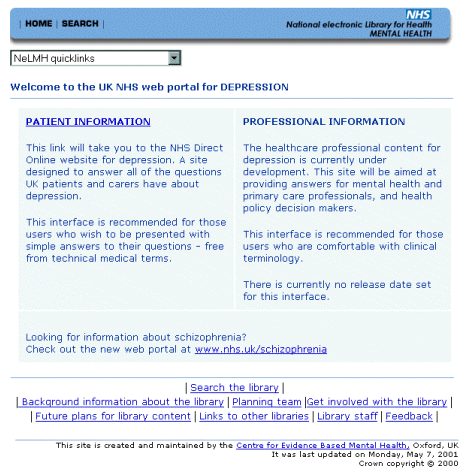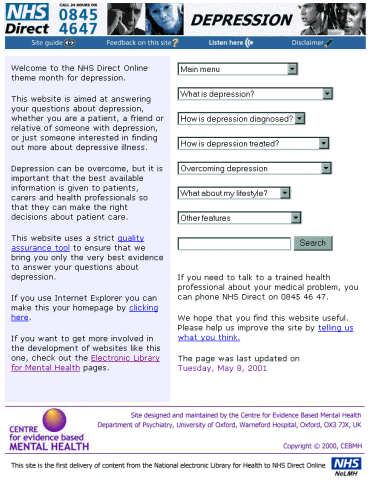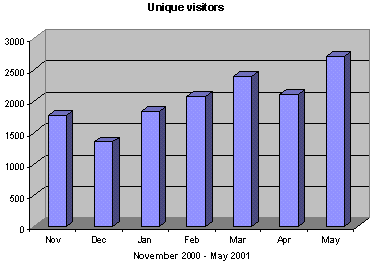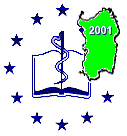 |
Delivering evidence-based patient information: you can't always get what you want, but did you get what you need? Impact of a depression theme month for NHS Direct (UK). Karin Dearness*,
André Tomlin*, Bob Gann**, Matt Jordan**
|
|
|
Click here to see the poster in ppt format |
|
|
 |
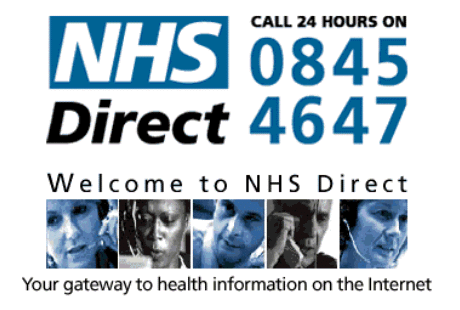
www.nhsdirect.nhs.uk
How can we ensure that people using the depression website get what they need? Comprehensive The website
answers all of the questions that UK patients and carers ask about depression.
Treatment information ranges from detailed comparisons of the more common
therapies (Antidepressants, Cognitive Behavioural Therapy, St. John's Wort)
through to information on the effectiveness of a wide range of complementary
treatments. Information is presented on diagnosis, overcoming depression
and lifestyle issues, as well as a number of other sections including evaluated
patient information, a bibliography and a glossary.
Reliable The website
production team appraises all content and excludes material that does not
meet a strict inclusion criteria. It is updated on a regular basis, adhering
to a sound methodological process. All material on the site is written
from scratch by experienced clinicians, referenced by librarians and peer
reviewed by international experts in the field.
Unbiased Many websites suffer from a lack of methodological quality or publication bias. This is often simply because the site is produced by a non-independent organisation (pharmaceutical company or government). The depression site does not suffer from these problems of bias as it is produced by the Centre for Evidence Based Mental Health which has no interest in promoting specific treatments. It is completely independent from the drug industry, from the UK National Health Service, and from the UK Government. User-friendly The website is designed for as wide a range of web-users as possible. It adheres to international standards such as W3. The site has been built so that users can find an answer to their question within 15 seconds or 3 clicks. Treatment information is offered on two levels: a basic summary and a more detailed page, so that users can answer their questions as quickly as possible. Up-to-date The site is
currently updated on a six monthly basis by request from NHS Direct. This
ties in with the majority of reliable evidence based resources which tend
to be updated on a quarterly or biannual basis.
How are we assessing user satisfaction? Tracking The website
is tracked to obtain usage statistics.
Improved leaflets for patients and carers Material from patient and consumer health organisations is appraised for inclusion in the site. This process encourages these organisations to produced leaflets that are more evidence based and user-friendly. Feedback Users are asked to send feedback about their experience of using the site. Unanswered questions are collated and answered in the biannual update. Understanding The site aims to encourage a greater understanding of the evidence based methodology used to develop content. Interface evaluation Users are also encouraged to feedback their thoughts on the interface chosen for the website. Contact:
Ms Karin Dearness karin.dearness@psych.ox.ac.uk
|
|
|
|
|
